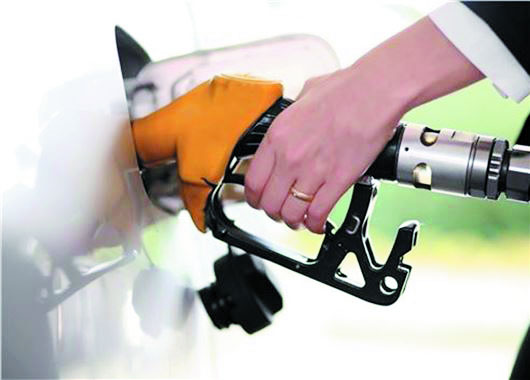Has the country’s largest carmaker overplayed its hand by announcing that they will stop sales of all diesel cars by April 1, 2020?
During Maruti-Suzuki’s annual results press briefing, the company’s Chairman R C Bhargava started dropping subtle hints. First he said that the company would stop production of the diesel-variant of the Suzuki Super-Carry light commercial vehicle. Okay, then Bhargava, who has never been one to mince words, said that making a small diesel engine compliant with Bharat Stage 6 (BS6) emissions regulations would make a small diesel engine cost over Rs 2 lakh more than a small petrol. Then the bombshell, it isn’t just commercial diesel vehicles that Maruti-Suzuki would stop selling on April 1, 2020, it would be all diesel vehicles. Now, this did not just shock the twenty of us journalists assembled in the room, this announcement spooked investors too as Maruti’s share price suddenly plummeted. Diesel car sales account for a quarter of all Maruti vehicle sales (23 per cent to be precise) — certain products like the Vitara Brezza and S-Cross are only sold with diesel engines currently. There is talk that Maruti will install the K15 petrol engine in several models such as the two mentioned previously, all with the ‘Smart Hybrid’ system, but can that really be the reason?
Cynically, one possibility is that Maruti is withdrawing from the diesel car market because it has no products to sell. While Maruti-Suzuki had continued with the old Fiat 1.3 DDiS engine for over a decade, it was getting long in the tooth and all Maruti small cars were severely underpowered compared to the competition. The engine produced between 74-88 horsepower depending on the cars it was fitted on, between 10-30 horsepower less than the competition. Maruti did ironically start offering up a new 1.5-litre diesel engine, called the DDiS 225 after its torque output, and this one has a power output of 98 horsepower. This new diesel engine has been fitted on the Ciaz and Ertiga already and is likely to be fitted on the S-Cross and Vitara Brezza as well. But it is not BS6 compatible and while Maruti-Suzuki has tried to make it BS6 compliant for a lower cost, it has not succeeded according to some in the know.
Is Maruti-Suzuki, therefore, doing some market research to figure out whether the public at large are willing to pay a two lakh rupee premium? Or do its decision-makers feel that at this premium, diesel cars will become unaffordable for the public at large and other than some commercial (taxi) and high-mileage applications, the average buyer will steer away from diesels from just a pure cost point of view? After all, diesel car sales peaked when the price difference between diesel and petrol was almost Rs 20 a litre, and now from over 54 per cent of the market, diesels account for just 23 per cent of the market.
Several buyers, particularly in the national capital region where the Supreme Court has banned diesels over ten years old from operating, have switched whole-heartedly to petrol, so much so that even for luxury car marques like Mercedes-Benz and BMW, petrol car sales have quadrupled in the past year in some markets like Delhi. We are not even going into their performance portfolio. This is why all luxury brands are now launching petrol variants of all their major vehicles.
There is also the maths when it comes to usage. A two-lakh rupee capital premium works at current fuel prices and assuming the fact that a diesel vehicle on average delivers 20 per cent more mileage per litre in intra-urban conditions — I’m using a Hyundai Creta as a baseline here, since I’m currently driving a Diesel SX Manual variant, which in BS4 spec costs Rs 13.6 lakh ex-showroom Delhi. A similar petrol costs Rs 12.26 lakh, a difference of Rs 1.3 lakh. The diesel delivers around 13.5-14 km per litre (on average, urban traffic and air-con on); the petrol gives just around 11 km per litre. The math now, on average of 10,000 km driven per year at current fuel prices of Rs 66.7 per litre of diesel and Rs 73.1 for petrol (in Delhi) with me just doing simple division and multiplication, gives me saving of Rs 19,000 annually give or take a bit. So over six years you should break even. But now when you consider that in Delhi after ten years your diesel car is a heap of scrap metal and a petrol car still has five years of legitimate life, the math gets very different. And on top of that, if a BS6 car costs a lakh more, something most manufacturers agree on, the maths change dramatically for such low-mileage applications.
So when the price differential is over two lakhs and the accelerated depreciation of a diesel vehicle are factored in, you need to be driving around 25,000 plus km a year at current fuel prices for your diesel purchase to make sense over a five year period. And frankly, Maruti-Suzuki has a point here, very few people will do that. And if the ten-year diesel scrappage rule spreads nationwide, even fewer.
This is not about altruistic reasons or pollution and mileage. This is about operating economics, plain and simple. Diesels are not going to be cheap anymore and thus no one will really want to buy them.


























